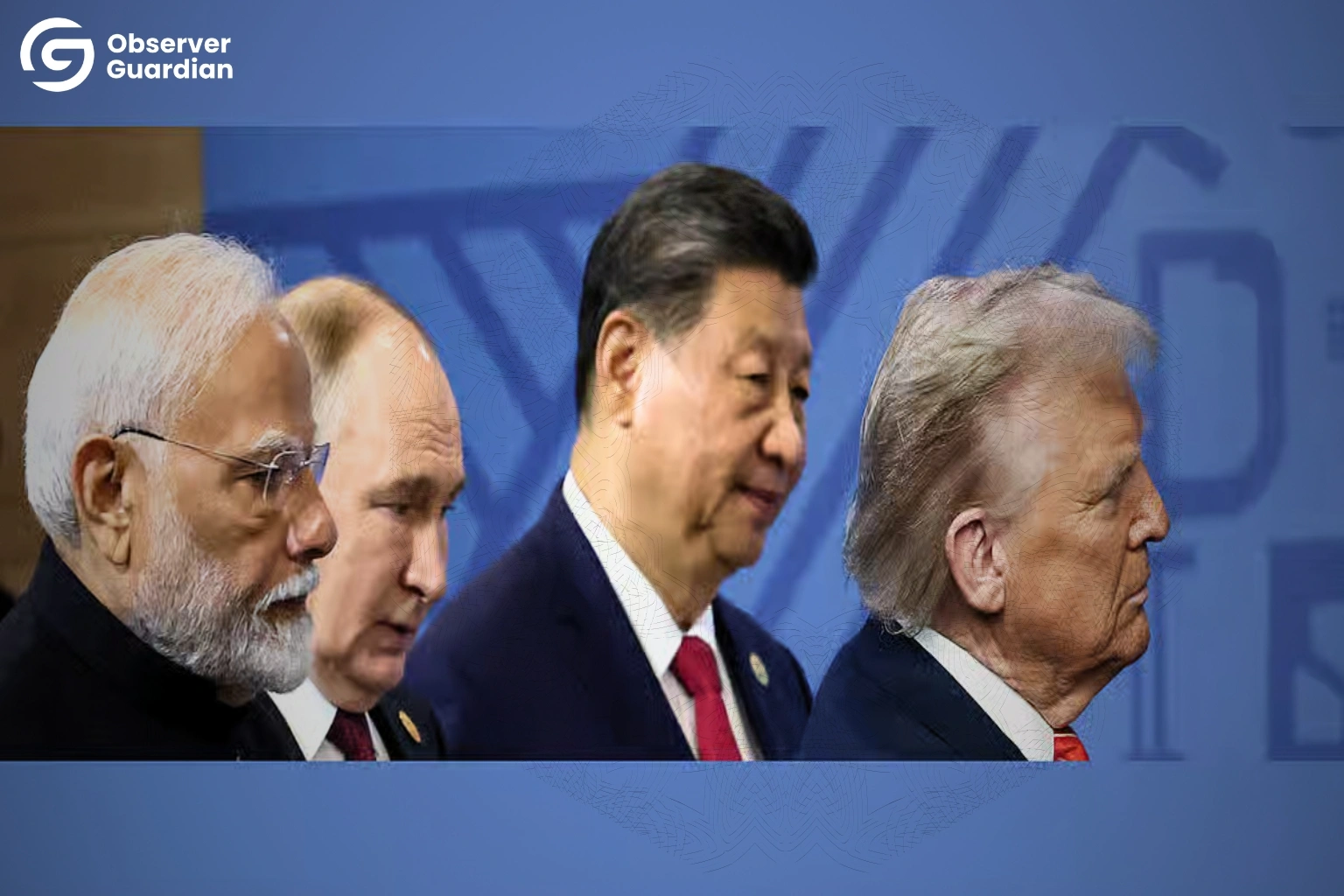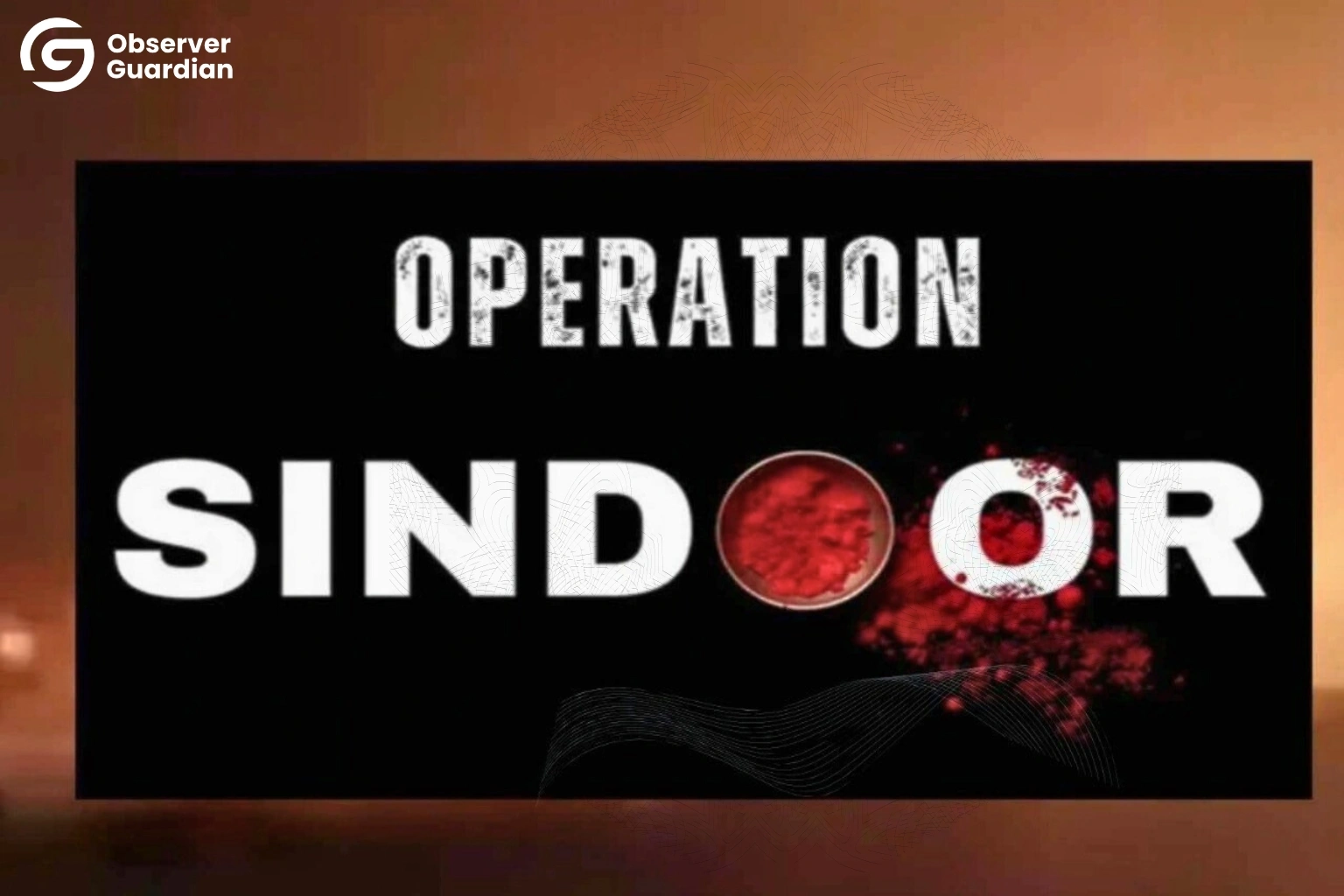Operation Sindoor was to establish India as a local superpower with the capability of making decisive military action. However, it has revealed the faults behind that picture. The loss of 6 fighter jets, failure to meet targets, broken morale that was being sold as a victory of precision warfare, turned out to be a political and strategic headache. Within weeks, the government that was boasting the strength of New India, was floundering and trying to find a way out. The outcome has been a moral and diplomatic fallout as many are calling it in India, a time when “Vishwaguru” India floundered in isolation.
Vishwaguru to Isolation
Meanwhile, the call to the Taliban foreign minister to hold negotiations in New Delhi city was a breathtaking turnaround. Only a few years back, the Indian officials labeled the Taliban as medieval misogynists.
Moreover, the mood of the people was well captured by journalist Meenu Jain in a highly spread column. She said, “When we got the freedom, we were not so weak. Now that we are required to go to war with Pakistan through Afghanistan and Taliban, where is the leadership of the world that we supposed? This happens to be the outcome of the Operation Sindhur defeat. They have been taken to the extent of not knowing where to go, towards China or to the Taliban.

Similarly, Jain also levelled the charge of hypocrisy on government which preaches “Beti Bachao, Beti Padhao” at home, and at the same time welcomes a regime that reduces women to invisibility. She made comparisons between the Taliban’s treatment of women and the conservative gender ideology of the RSS, BJP. She says it will be normalized by tolerating the Taliban rulers of Kabul as a strategy-driven measure.
Backlash across Indian Media and Civil Society
Further, there was increased public anger, as female reporters were denied the opportunity to cover the initial Taliban delegation press conference in Delhi. To a government that boasts of having control over the media, letting such an incident happen represented not strength, but submission. It was referred to as humiliation of Indian women in their own capital by the news anchors.
Additionally, the opposition parties claimed that Prime Minister Modi was bowing down to the extremists due to the fear of Pakistan. Hashtags such as #VishwaguruNoMore went on for days.
Indian Analysts’ Criticism
However, resentment is strong even among the security circles of India itself. Yale lecturer and defense expert Sushant Singh said that there was no tactical error in the Operation Sindoor, but it was a strategic error. Implausibly, he added, the airstrikes were directed at symbolic rather than strategic targets, and that expensive ventures were directed at television optics instead of national security.
On the same note, the editor of the magazine Force, Pravin Sawhney, told interviewer Karan Thapar that it was militarily futile to attack temporary militant camps. “One do not win wars by losing shadows,” he said, and the official reports of Pakistani airplane losses were never confirmed. To both men, the episode showed a government that was more focused on story than outcome.

International Exposure of India’s Proxy Politics
Likewise, author of the SOAS South Asia Institute, Dr Subir Sinha termed this shift towards the Taliban in India as a big move to surround Pakistan. He enumerated four reasons underlining:
- To exert indirect pressure on Pakistan when defeated in open warfare.
- To match the Chinese influence in Afghanistan.
- To extract lithium, copper and gold deposits in Afghanistan which are vital to the electric-vehicle industry in India.
- In order to shape Muslim voters in Bihar by showing itself as realistic to Islamic movements.
Correspondingly, Dr Sinha also cautioned that the encouragement of the Afghan media by the Indian government to raise “Afghan flags in Attock and Quetta”, was also an encouragement to anti-Pakistan groups such as the BLA. According to him, such strategies would make India becoming a regional saboteur, and not a stabilizing power.
Ethical Hypocrisy and Foreign Policy
Although, the United Nations has criticized the Taliban rule as gender apartheid based, but now their envoys are being treated with red carpet at New Delhi. In the process of attempting to cover up a military defeat, India sold its moral authority on expediency.
This side has been especially hurting to a nation that tends to preach to the world the rights of women and democracy.
Thus, the foreign correspondents pointed to the fact that India started receiving the Taliban, and it plans of a covert coordination with the groups that are hostile to Pakistan. Now, formal or otherwise, the perception itself makes India look like an irresponsible actor.
Meanwhile, the stature of Pakistan was rising silently. Its diplomatic quietness and outreach were pointed out by international analysts as opposed to the unpredictable actions of New Delhi. In most of the capitals, the end was easy, and it was that Pakistan had become steadier than its opponent.
To a degree, even in India, a consensus has emerged among the journalists and strategists that the foreign policy of the country has become reactive and insecure. In the emotional attack of Meenu Jain and the cold analysis of Sushant Singh, in the realistic bluntness of Pravin Sawhney and the scholarly disapproval of Subir Sinha, the message is identical. And the message is that the leadership of India has confused bravado with power, and spectacle with strategy.
Eventually, Operation Sindoor has become a symbol of the bigger trend of the Modi government. It showed ambition without restraint and pride without reflection in India. What was supposed to take control over has alienated India. New Delhi, once Vishwaguru, has now come to make a reckoning of its own creation. It has made its image that it has been falling back not only out of the battlefield, but out of principle, out of credibility, and out of clarity of morals.
⚠ Disclaimer
The views and opinions expressed in this article are exclusively those of the author and do not reflect the official stance, policies, or perspectives of the Platform.








